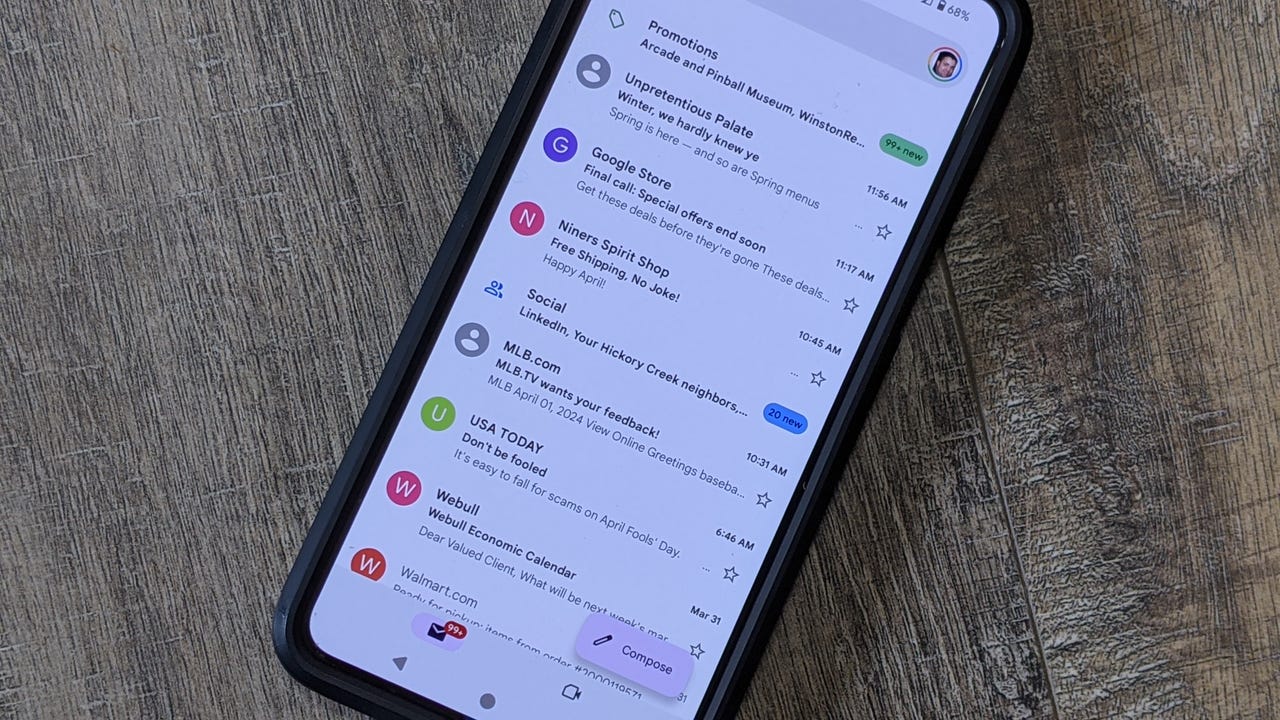When Gmail arrived 20 years ago, people thought it was an April Fools prank

When Gmail was launched on April 1, 2004, many people thought Google's announcement of its own email platform was an April Fool's Day prank.
Google's advertised 1 GB of free storage was a staggering amount for the time, especially compared to email alternatives like Hotmail and Yahoo, each of which offered a tiny fraction of that amount.
Also: The best email hosting services of 2024
But now, 20 years and 1.2 billion users later (one out of every seven people), Gmail is not only no joke, but the biggest name in email by a longshot. And Gmail storage is up to 15 GB per user these days.
In the original press release, Google highlighted the ability to search for a certain message, a big deal at the time, and the unprecedented storage space. "Gmail is built on the idea that users should never have to file or delete a message," the press release read, "or struggle to find an email they've sent or received."
In 2005, the company doubled its available storage size to 2 GB per user. In 2006, it launched the companion Google Calendar. Google Chat was introduced the same year, and the service went fully public on February 14, 2007.
In 2008, Gmail saw the addition of perhaps its most useful feature -- the forgotten attachment detector, followed by the much-needed "undo send" in 2009. The same year saw offline access added, and the service continued to grow, adding an iOS app in 2011. The following year, 2012, saw 425 million users, plus an upgrade to 10 GB of storage. By 2013, the storage limit had reached its current 15 GB limit. Gmail reached 1 billion users in 2016.
Small features have been added through the years, like smart replies, one-click unsubscribe, an integrated view that makes it easier to move between Google apps, and even automatic translation capability and AI features that can write messages for you.
Also: Less typing, fewer mistakes: How Gmail Snippets can save you time and effort
Despite being wildly popular, Gmail's time hasn't been without controversy.
Prior to 2017, Google's email service automatically scanned the text of each message not only to detect spam or malware, but to place relevant advertising alongside. After facing several lawsuits around that practice -- especially concerning matters of race, religion, health, finances, or sexual orientation -- Google said it would stop reading users' emails and use other data sources for contextual ads.
Additionally, a 2018 report from the Wall Street Journal showed that third-party developers were able to scan hundreds of millions of user emails.
For the most part, though, the service has been the gold standard for email for many years now, and the go-to option for most people.
Also: How to quickly create a Google task from an email in Gmail
So what's the future for Gmail?
As an elder millennial on the cusp of Generation X and a Gmail user from the beta days, I remember when email was the main method of communication with far-flung friends and family. But now, with the proliferation of apps like Slack and Teams for work and Messenger and WhatsApp for conversations, I can't remember the last time I used email for actual communication with someone.
Even official things like plane tickets or hotel reservations, for which Gmail used to be my repository, are now accessed through apps.
But for record keeping, email is still my standard. And of course, email isn't limited to a single platform, as you can still easily access anyone with an email address. Email is better for large mailing lists, and for sending documents and other files, and it's more secure than most messaging apps.
Communication has certainly changed in the two decades since Gmail came onto the scene, and while the purpose of email has changed, it's still clear it isn't going anywhere.
